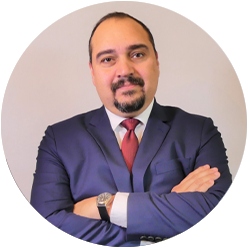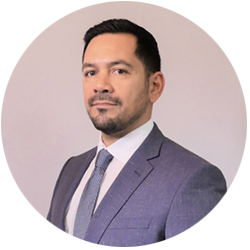Motorcycle accidents are an unfortunate reality on Florida’s roads. Given the state’s warm climate and scenic routes, motorcycling is a popular mode of transportation for both residents and visitors. However, with the increasing number of motorcycles on the road comes a corresponding rise in motorcycle-related accidents. Determining fault in these accidents is often a complex process, one that requires a deep understanding of traffic laws, accident dynamics, and the various factors that contribute to collisions. In this discussion, we will address some common queries that arise when determining fault in Florida motorcycle accidents, providing clarity on this crucial aspect of personal injury law.
Understanding the Basics of Fault in Motorcycle Accidents
Fault in a motorcycle accident refers to the legal responsibility for the collision. In Florida, determining fault is critical because it influences who bears the financial burden of the accident. The state follows a comparative negligence rule, which means that fault can be divided among the parties involved. For instance, if a motorcyclist is found to be 30 percent at fault for the accident, they can still recover damages, but the compensation will be reduced by their percentage of fault. This system underscores the importance of accurately determining the degree of fault each party holds.
What Factors Are Considered When Determining Fault?
Several factors are taken into account when determining fault in a motorcycle accident in Florida. These include traffic laws, road conditions, the behavior of both the motorcyclist and other drivers, and any potential mechanical failures. Traffic laws are the most straightforward factor. If a driver or motorcyclist violated traffic laws, such as speeding, running a red light, or failing to yield, this violation would be strong evidence of fault. However, other factors, such as weather conditions or poor road maintenance, can also play a significant role. For example, if a motorcyclist loses control on a road that is slick due to a recent rainstorm, the condition of the road might be a contributing factor in the accident. Mechanical failures, such as brake malfunctions, are also considered, particularly if the motorcyclist or another driver failed to maintain their vehicle properly.
How Does Comparative Negligence Impact a Motorcycle Accident Claim?
In Florida, comparative negligence allows for the possibility that both the motorcyclist and another party can share fault for the accident. This doctrine impacts how compensation is awarded. If a motorcyclist is partially at fault, their ability to recover damages is not entirely barred, but their compensation will be adjusted according to their degree of fault. For instance, if a motorcyclist is awarded $100,000 in damages but is found to be 25 percent at fault, they will only receive $75,000. This rule emphasizes the need for a thorough investigation to determine the precise degree of fault attributable to each party.
What Role Does Evidence Play in Determining Fault?
Evidence is crucial in determining fault in a motorcycle accident. This evidence can include photographs of the accident scene, witness statements, traffic camera footage, and police reports. Each piece of evidence helps to reconstruct the events leading up to the accident and provides insight into who may have been at fault. Police reports are often the first source of evidence examined, as they contain the officer’s observations and any citations issued at the scene. However, witness statements can also be invaluable, particularly if they provide an unbiased account of the accident. Photographs of the scene, including the position of the vehicles, skid marks, and any damage to the road or surrounding property, can further help to establish the sequence of events. All of this evidence combined can create a comprehensive picture that helps to determine fault.
Choosing a Car Accident Attorney Personal Injury Case ValueRelated Videos
Can Fault Be Challenged After It Has Been Determined?
Yes, fault can be challenged after it has been determined, particularly if new evidence comes to light or if there are discrepancies in the initial investigation. If a motorcyclist or driver believes that they were unfairly assigned fault, they can dispute the findings through legal channels. This process may involve additional investigations, testimony, and legal arguments to reassess the distribution of fault. Challenging fault is not uncommon, especially in complex accidents where multiple factors and parties are involved. A successful challenge could lead to a reallocation of fault, which can significantly impact the outcome of a personal injury claim.
How Can a Lawyer Assist in Determining Fault?
A lawyer plays a vital role in determining fault in a motorcycle accident. They have the experience and knowledge to gather and analyze evidence, interview witnesses, and consult with accident reconstruction specialists if necessary. They can also navigate the complexities of Florida’s comparative negligence laws to ensure that their client’s rights are protected and that they receive the compensation they deserve. Additionally, a lawyer can challenge any unfair fault assignments, advocating for a fair distribution of liability. This legal guidance is particularly important in motorcycle accidents, where the stakes are often high due to the severity of injuries and the potential for significant financial loss.
Why Is It Important to Act Quickly After a Motorcycle Accident?
Acting quickly after a motorcycle accident is crucial for several reasons. First, evidence can quickly deteriorate or disappear. For instance, skid marks may fade, and witnesses may become harder to locate as time passes. Prompt action ensures that all relevant evidence is preserved and can be used to determine fault accurately. Second, Florida has a statute of limitations for filing personal injury claims, which means there is a limited window of time in which a claim can be filed. Delaying action could result in the loss of the right to seek compensation. Finally, acting quickly allows for a more timely resolution of the case, which can provide much-needed financial relief for medical bills, lost wages, and other expenses.
Serious Results
What Should You Do If You Are Involved in a Motorcycle Accident?
If you are involved in a motorcycle accident, the first priority should be to seek medical attention, even if you do not feel seriously injured at the time. Some injuries may not be immediately apparent, and a medical evaluation can document any harm you have suffered. Once you have received medical care, it is important to document the accident as thoroughly as possible. This includes taking photographs of the scene, gathering contact information from witnesses, and obtaining a copy of the police report. Contacting a lawyer as soon as possible is also advisable. A lawyer can guide you through the legal process, help you understand your rights, and work to ensure that fault is determined accurately.
How Does Florida’s No-Fault Insurance System Affect Motorcycle Accident Claims?
Florida’s no-fault insurance system generally requires that drivers turn to their own insurance to cover medical expenses after an accident, regardless of who is at fault. However, this system does not apply to motorcycles. Motorcyclists in Florida are not required to carry personal injury protection (PIP) insurance, which is mandatory for other drivers. As a result, motorcyclists must seek compensation directly from the at-fault party through a personal injury claim. This difference underscores the importance of accurately determining fault in motorcycle accidents, as it directly impacts the motorcyclist’s ability to recover damages for medical bills, lost income, and other expenses.
What Are Common Causes of Motorcycle Accidents in Florida?
Understanding common causes of motorcycle accidents can also shed light on how fault is determined. Some of the most frequent causes include driver negligence, such as failing to see a motorcyclist, unsafe lane changes, speeding, and driving under the influence. Environmental factors, such as poor road conditions or inclement weather, can also contribute to accidents. In some cases, the motorcyclist’s own actions, such as speeding or reckless driving, may play a role. By examining these factors, it becomes easier to assess who was at fault and to what degree each party contributed to the accident.
Why Is Legal Representation Important in Motorcycle Accident Cases?
Legal representation is crucial in motorcycle accident cases because of the complexity involved in determining fault and pursuing compensation. A lawyer can provide the guidance and support needed to navigate the legal process, negotiate with insurance companies, and, if necessary, take the case to court. The legal system can be overwhelming, especially when dealing with the aftermath of an accident, which often includes physical injuries, emotional distress, and financial strain. A lawyer’s involvement can alleviate some of this burden, allowing the injured party to focus on recovery while their legal representative handles the complexities of the case.
Determining fault in a Florida motorcycle accident is a multifaceted process that involves a thorough investigation, a deep understanding of traffic laws, and the careful analysis of evidence. The outcome of this process directly impacts the ability to recover damages and can significantly affect the financial and emotional well-being of those involved. If you or a loved one has been involved in a motorcycle accident, it is crucial to seek legal assistance to ensure that fault is determined accurately and that your rights are protected.
If you have been involved in a motorcycle accident and need help determining fault, Victory Law Firm P.A. is here to assist you. Our experienced legal team understands the complexities of Florida’s motorcycle accident laws and is committed to helping you navigate this challenging time. We will work tirelessly to ensure that fault is accurately determined and that you receive the compensation you deserve. Contact Victory Law Firm P.A. today to schedule a consultation and take the first step towards protecting your rights.



